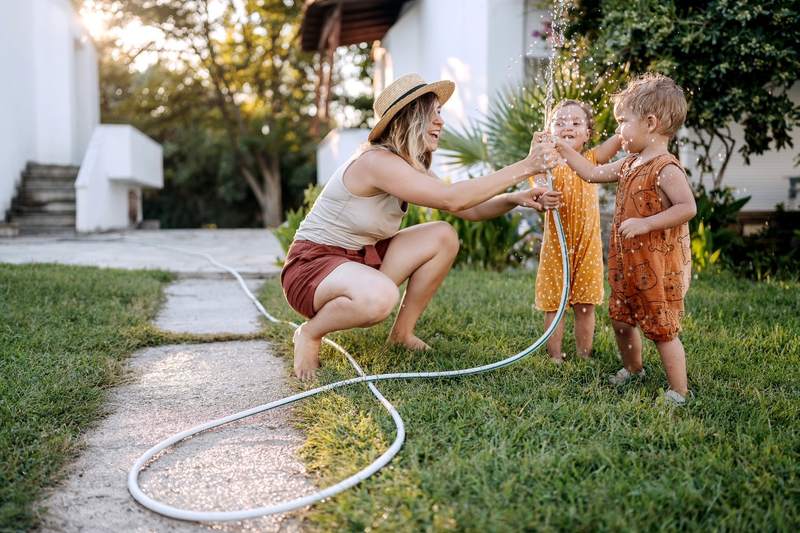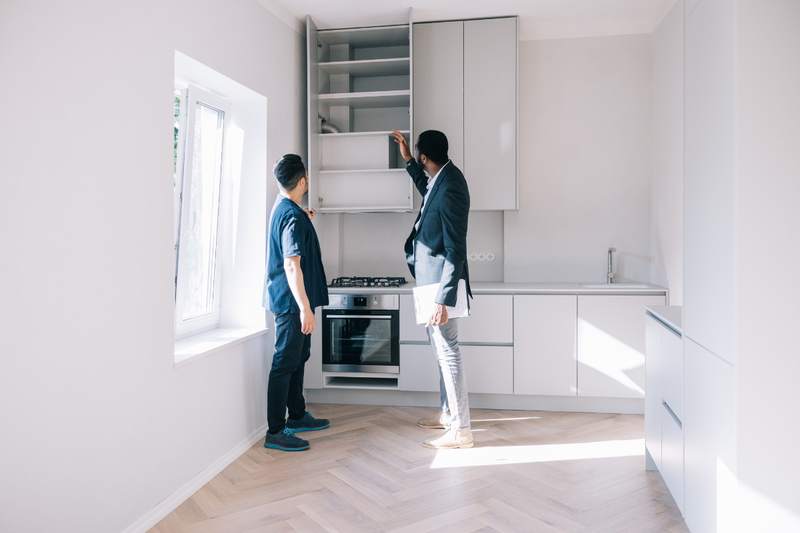Buying a home is less like a sprint and more like a marathon. If you’ve successfully made an offer on a home and chosen a mortgage, then you’ve almost reached the finish line.
Closing is the last part of the homebuying process. It involves signing all the documents that transfer official ownership to you and legally bind you to paying your mortgage. It’s important to know this process doesn’t happen overnight, and may require patience to carefully review the paperwork.
Key Takeaways:
- The timeline for closing on a house can be broken down into nine steps, which start with signing the purchase and sale agreement and end with getting through closing day.
- You’ll be asked to bring several documents with you on closing day, including the closing disclosure and the promissory note.
- Problems found in the final stages of the homebuying process can cause closing delays. For example, if there’s an issue with the property’s title, it will need to be resolved before you close.
How Long Does Closing On a House Take?
Generally, you can expect the closing process to take between 30 and 60 days. In October 2023, it took 45 days on average to close on a home that was financed with a conventional mortgage, according to ICE Mortgage Technology.
Will the closing timeline vary depending on the loan type?
Generally, most types of loans will take about the same amount of time to close. The timeline may vary only by a few days. For example, both Federal Housing Administration loans and conventional loans took an average of 45 days to close in October 2023, according to ICE Mortgage Technology.
Buying with cash vs. buying with a mortgage
Buying a home with cash can expedite the closing process because you won’t need a loan to fund the purchase. Cash sales can close in as little as a week or two.
House Closing Timeline: 9 Steps To Close On a House
There are a lot of steps to take when closing on a house. Let’s go through the most common components, along with how long each step can take.
1. Negotiate and sign the purchase agreement
How long it takes: About 10 days to two weeks at most.
Closing cannot begin until both the buyer and seller sign a purchase and sale agreement for the home. The purchase and sale agreement describes the transaction in detail, including the home price, conditions of the sale, and the closing date.
Unless the offer sets a deadline for signing the purchase and sale agreement, there’s no hard-and-fast time frame for completing this step. Most offers set a deadline of about 10 to 14 days after the seller accepts an offer, says Kimo Quance, a real estate agent and owner of The Kimo Quance Group in Santee, California.
Your purchase and sale agreement may contain conditions that must be met to close the home sale. These are called contingencies, and the most common ones are:
- An appraisal contingency. This specifies that closing the sale is contingent on a satisfactory appraisal of the property’s fair market value. If the appraisal determines the home is worth less than the purchase price, then the buyer can renegotiate or back out of buying the house.
- A financing contingency. This makes closing contingent on the buyer securing financing to pay for the property. If the buyer fails to get a mortgage, then the sale is canceled.
- An inspection contingency. The offer is contingent on the buyer being satisfied with the results of a professional home inspection. If the inspection finds the home has problems that make it unsafe or are expensive to fix, then the buyer can back out of the sale or renegotiate terms with the seller.
2. Get approved for a mortgage
How long it takes: 30 to 60 days.
Even when the buyer is preapproved, their loan application still needs to be finalized and approved to get a mortgage. It’s also smart to shop around for a mortgage and compare offers to make sure you’re getting the best available deal. Within three business days after you submit a full mortgage application, the lender will provide a loan estimate with the details of the loan you’re approved for. Then you’ll have 10 business days to accept the terms of the estimate.
When you submit a final loan application, the lender may ask you to provide additional paperwork for mortgage underwriting, which is the process of verifying your financial information. Depending on the complexity of your situation, underwriting can take a few days or a few weeks. Providing the necessary documents to the lender ensures the process moves along as quickly as possible.
Once the lender approves your mortgage application and you accept its terms, a closing date for the sale will be scheduled.
3. Open an escrow account
How long it takes: Up to one week.
An escrow account is essentially a bank account managed by a third party — such as the title company — to hold all funds for the sale and ensure payment to the proper parties. Once the sale is completed, the escrow account is closed.
“The title (or) escrow company is mutually chosen between buyers and sellers, generally advised by their Realtors,” says Beth Benner, a real estate broker at Living Room Realty in Portland, Oregon.
4. Get a home inspection
How long it takes: Two to four hours.
Getting a home inspection is a crucial step that should be scheduled as soon as possible. The inspection will reveal any major safety or functional issues with the home so that you can better understand its condition before completing the sale. If the inspection reveals the need for expensive repairs, you can either renegotiate the deal with the seller or use the inspection contingency in your purchase and sale agreement to cancel the sale.
If you fail to get a home inspection and you discover a serious problem after closing, then you’ll have to pay for repairs yourself.
5. Lock in your interest rate
How long it lasts: 15 to 60 days.
Since interest rates change, it can be a good idea to lock in your mortgage rate. Doing so gives you some protection from market fluctuations, especially if rates increase before you close. If you don’t close within the specified time frame, you’ll lose the rate lock, and your mortgage rate can change.
Keep in mind that interest rates also may go down. If you’re locked into your mortgage rate, you could miss out on a lower rate if overall interest rates decline.
6. Have the home appraised
How long it takes: Two days to one week.
Getting a home appraisal assures the lender that the mortgage it’s offering you is appropriate for the property’s market value. It’s a common contingency that must be met, and usually is required by the lender. The home appraisal is conducted by a licensed appraiser who has no connection to the buyer, seller, or lender.
7. Buy insurance
How long it takes: Up to a few days to get approved by the insurer.
You’ll likely face a couple of different insurance charges when closing on a home. There’s homeowners insurance, which provides liability coverage and protects you financially from damages to your property, as well as title insurance, which covers you and the lender against problems with the title or past claims on the home. In some parts of the country, you also may need or want separate flood or earthquake insurance policies.
8. Perform a final home walk-through
How long it takes: Up to a few hours.
One of the last things you should do before closing is to take a final walk-through to inspect the property and ensure it’s in the condition you expect. This allows you to check that the seller has completed any negotiated repairs and left behind any furnishings that were part of the sale. It also can alert you to any damage that may have occurred since the home inspection.
9. Get through closing day
How long it takes: Up to a couple of hours.
On closing day, the buyer and the seller sign the paperwork that officially transfers the ownership of the property. The buyer also closes on their loan. Money in the escrow account is paid out to the appropriate parties, and the buyer receives the deed and keys to their new home.
What To Expect at Closing
Let’s go through in detail what to expect on closing day, including the important documents you’ll be signing and the parties who will be present.
What happens on closing day?
The closing typically occurs at the office of one of the involved parties, such as the title company. Several things happen on closing day, but a big part is signing documents.
Key documents to review include:
- The closing disclosure. This document finalizes the details of your mortgage, such as the interest rate, monthly payment, cash to close, and more. You’ll receive this document at least three business days before closing.
- The deed of trust. This is the lender’s assurance that you will repay your loan, and allows the lender to foreclose on your home if you fail to meet the payment terms of your mortgage.
- The deed. The deed transfers ownership of the home to you. It also includes details about the home, such as where the property lines are.
- The promissory note. This document dictates that you agree to repay the lender for the amount borrowed at the stated interest rate, and on the repayment schedule outlined.
- The initial escrow account statement. This document shows you how much your mortgage payment will be, and how much of that payment will go into an escrow account. It also will itemize everything that the payments to your escrow account will go toward, such as insurance and taxes.
- The affidavit of title. This is a document that proves the seller is the owner of the property. It contains a sworn statement by the seller that they own the home’s title.
- The appraisal receipt acknowledgement. You’ll sign this letter to confirm you received a home appraisal.
- Homeowners association disclosure documents. If your new home is part of an HOA, these documents will outline the rules and regulations you must follow. Breaking the HOA’s rules can result in penalties and fines.
- The certificate of occupancy. If you’re buying a new-construction home, you’ll sign a certificate of occupancy to confirm that the building is up to code and safe to live in.
- Transfer tax documents. If you live in a state that imposes a transfer tax on real estate transactions, these documents will outline how much you’ll pay.
“Once all docs have been executed by all parties, the closing agent can transfer all the monies, or, as we call it in the industry, ‘fund,’” says Jose Laya, a real estate broker at Berkshire Hathaway HomeServices EWM Realty in Miami Beach, Florida. “Funding is where the monies get transferred to all parties and the transaction officially is closed.”
Who is present during closing?
The closing may include all of these people or just some of them:
- The buyer’s real estate agent.
- The buyer’s attorney.
- The seller’s attorney.
- A representative from the title company.
- A representative from the escrow company.
- Someone representing the lender.
“You can actually have both parties, buyer and seller, at the closing, but I don’t recommend this,” says Shay Raja, a real estate and commercial finance attorney at Carlton Fields in Orlando, Florida. “Normally, on closing day, you want to have the seller’s docs already signed, so that the buyer can just come to closing and sign all docs, and also have the transaction fund.”
Digital vs. in-person closing
Holding your closing via an online video conference can help you save time. This also can be a good option if you’re buying a home remotely, and you know the paperwork and funds can be submitted electronically. Remote online notarization lets you complete this process from a distance, though the exact rules vary by state.
What do you need to bring to the closing?
It’s important to bring valid identification, such as a driver’s license or passport. You also should check with your bank and be ready to pay the closing costs.
“The title company will either require a wire (transfer) or a cashier’s check for the closing,” says Teresa Trigas-Pfefferle, a Realtor and broker at Keller Williams in Clinton, New Jersey. “It is also good to bring your own personal checkbook, in the case of any small changes.”
How long does closing day take?
Closing day should only take an hour or two. It could take longer if you are unprepared or fail to bring necessary documents with you.
What should you do after closing?
After you close on a home, it’s important to organize and safely file the documents associated with your home purchase. These documents include your closing disclosure, the promissory note, the deed, and the home inspection report. Consider storing these documents in a fireproof safe, or a deposit box at your local bank.
It’s also important to inform insurance providers, utility companies, banks, and any other relevant parties that you’ve changed your address.
What Can Cause Closing Delays?
There are several reasons why a closing may be delayed, such as:
- The seller hasn’t completed agreed-upon repairs. If the seller agreed to make repairs based on the home inspection, and the fixes aren’t to your satisfaction, the closing date can be pushed back to give the seller more time to properly complete the repairs.
- There’s a discrepancy between the appraisal and sale price. Appraisal issues delayed 7% of home purchases in September 2023, according to the National Association of Realtors. If there’s an appraisal gap, you may want to renegotiate with the seller, dispute the home appraisal, or get a second appraisal.
- The buyer is unable to make the down payment. An unexpected emergency expense could eat into your savings and interfere with your ability to make a down payment, which will delay the sale.
- There are issues with the title. One of the most common causes of closing delays is an issue with the title report. The sale cannot go through unless there is confirmation that the home has a clean title.
- There are issues with the buyer’s credit report or credit score. Issues could include closed accounts that are listed as open, false reports of delinquency, and debt duplications.
- A home sale contingency isn’t met. Including this contingency in the purchase agreement means you can back out of the deal if you can’t find a buyer for your current home. If you included this contingency and plan to use the proceeds from the sale of your current home to help pay for your new one, closing may be delayed until you find a buyer.
“Typically, it’s the borrower not providing documentation in time, or the wrong documentation,” says Andy Kolodgie, owner of Property Leads in Sheridan, Wyoming. “Otherwise, the lender might be moving slowly, and things are not getting done in time, such as underwriting and processing. Sometimes, the title company will overbook their schedule and not allow for enough time to close.”
How to avoid closing delays
Here are some of the ways a buyer can avoid delays and keep the closing process on track:
- Get preapproved early.
- Select a lender as early as possible.
- Work with an experienced lender.
- Schedule a home inspection as early as possible.
- Gather necessary documentation in advance.
- Review all closing documents carefully.
- Ask your real estate agent if anything seems unclear or incorrect to you.
- Get a cashier’s check or wire transfer to cover the down payment and closing costs.
- Conduct a thorough final home walk-through.
- Be prepared in case the appraisal comes in low.
- Make sure the home has a clean title.
How Much Does It Cost To Close On a House?
Closing costs, aka settlement fees, typically range between 2% and 5% of the purchase price, according to Freddie Mac. They cover the fees charged by the parties involved in the sale, including your real estate agent and the lender.
The loan estimate provided by the lender explains what you can expect to pay in closing costs, broken down item by item. It includes the total closing costs as well as the estimated cash to close, which also factors in your down payment, earnest money, and any other charges or credits.
Final closing costs will be detailed in the closing disclosure.
FAQ: Time To Close On a House
Here are answers to some frequently asked questions about closing on a home.
Are there advantages to a quick closing?
Closing quickly can help you save time and money. For one, if you locked in your mortgage rate, the rate lock will have an expiration date. If your closing drags on, then you’ll either need to pay to extend the rate lock or risk getting a higher interest rate.
Does closing on a house mean you get the keys?
After you’ve signed the paperwork and submitted the funds, the title to the home will be transferred to your name. This is when you officially become the homeowner and receive the keys.
What can delay the home appraisal?
The appraisal can be delayed for different reasons. For example, if there are few appraisers in your area, they could be booked if you try to schedule a last-minute appraisal. Additionally, if your property is unique, it may be harder to find comparable homes in your area, and it can take longer for the appraiser to estimate what the home could sell for on the market.
The Bottom Line on Average Closing Times
Closing on a house can be a stressful experience, but it also means you’re at the end of the homebuying process. Fortunately, many parts of the house closing process — such as setting up escrow accounts, preparing paperwork, and conducting the home inspection and appraisal — are handled by professionals.
What’s important for the buyer is to understand all the responsibilities, requirements, and transactions that take place in the homebuying process. Avoid signing any documents that you don’t understand or seem different from what you expected, and take as much time as you need to learn how to close on a house.
Rory Arnold and Michael Rosenthal contributed to the reporting for this article.






